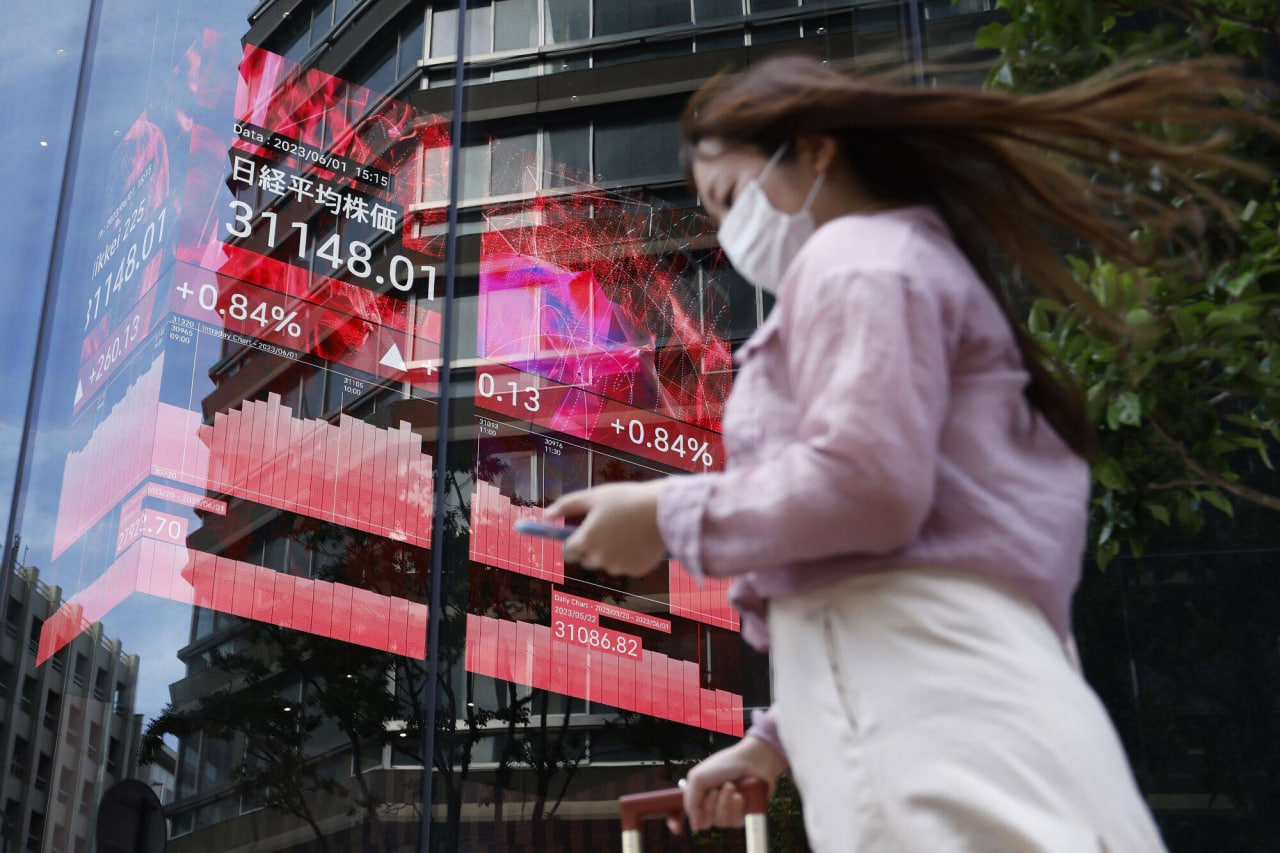Elon Musk's Million-Dollar Giveaway: A Legal Minefield?
Meta Description: Elon Musk, Tesla CEO, faces legal challenges for his million-dollar voter giveaway in swing states. Explore the legal ramifications, ethical considerations, and potential impact on election integrity. Learn about campaign finance laws, probability, and the complexities of such large-scale giveaways.
Imagine this: you're scrolling through your social media feed, minding your own business, when BAM! A notification pops up – you've won $1,000,000 from Elon Musk! Sounds like a dream, right? Well, that dream almost became a reality for some lucky (or perhaps unlucky) voters in key swing states. But this seemingly generous act by the Tesla CEO has stirred up a hornet's nest of legal and ethical controversies, prompting fierce debate about campaign finance laws, the integrity of the electoral process, and the very definition of influence peddling. This isn't just about a billionaire's largesse; it's a complex case study in the blurred lines between philanthropy, political maneuvering, and outright bribery. We'll delve deep into the legal battles, the probabilities involved, and the broader implications of this high-stakes gamble – exploring not just the facts of the case, but also the underlying issues that make it a truly fascinating and alarming development in the American political landscape. We'll dissect the Philadelphia District Attorney's lawsuit, analyze the Justice Department's warning, and unpack the potential consequences for Musk and the future of election integrity. Get ready to unravel this tangled web of money, politics, and the unpredictable genius (or perhaps recklessness) of Elon Musk. Buckle up, because this ride is going to be wild! This isn't your grandpappy's political donation; it's a multi-million-dollar lottery with potentially far-reaching consequences. Prepare for an in-depth analysis that will leave you questioning everything you thought you knew about campaign finance and the power of a single tweet.
Campaign Finance Laws and the Musk Giveaway
This whole situation boils down to campaign finance law, a notoriously complex beast. The crux of the matter is whether Musk's giveaway constitutes an illegal campaign contribution. Now, you might be thinking, "It's a lottery, not a donation!" And you'd have a point… to an extent. However, the legal interpretation is far from straightforward. The Philadelphia District Attorney's office argues that the giveaway, especially targeted at voters in swing states, is an attempt to indirectly influence the election, circumventing traditional campaign finance regulations.
Imagine this: a massive influx of cash into a specific demographic of voters right before an election. This could potentially sway the outcome, even if it's not a direct "vote for X" type of bribery. The law is designed to prevent precisely this kind of undue influence, regardless of how cleverly disguised it may be. The argument isn't about whether Musk directly told people who to vote for; it's about the potential impact of his action on the electoral process. It's a subtle but potentially powerful form of manipulation, and that's what the legal challenge is all about. Think of it as a sophisticated game of chess, where the moves are carefully planned and the consequences can be far-reaching.
The Justice Department's warning issued before the lawsuit highlights this concern. It's not just about punishing Musk; it's about setting a precedent. If such giveaways were allowed, it would open the floodgates to potentially unlimited and unregulated influence on elections, potentially undermining democratic processes. This isn't just a matter of legal technicalities; it's a fundamental question about the fairness and integrity of the American electoral system. The stakes are incredibly high, and the legal battle promises to be a fascinating showdown.
The Probability Factor
Let's put on our statistician hats for a minute. The odds of winning Musk's million-dollar lottery were, to put it mildly, astronomical. This low probability doesn't entirely absolve Musk from potential legal repercussions. The key here is the intent behind the action. Even if the chance of winning was minuscule, the potential impact on individual voters' behavior – even a small shift in voting patterns due to the hope of winning – could be significant enough to trigger legal scrutiny.
It's not just about the individual odds; it's about the aggregate effect. The sheer scale of the giveaway, targeting a significant number of voters across multiple states, significantly increases the potential for influencing the election outcome. The probability of one person winning might be low, but the probability of the giveaway having some impact on the election is potentially much higher.
This is where things get truly interesting. We're dealing with probabilities, and the legal system isn't always equipped to deal with such nuanced calculations. This case forces the courts to grapple with a novel challenge: quantifying the impact of a seemingly random act on a carefully regulated process. It's a legal and statistical tightrope walk, and the outcome remains to be seen.
Ethical Considerations Beyond the Law
Beyond the legal aspects, this situation raises serious ethical questions. Is it ethical for a billionaire to essentially buy influence, even indirectly, on an election? Some argue that Musk's action, despite its questionable legality, is a form of philanthropic expression, albeit a highly unconventional one. Others would argue that it’s nothing more than a blatant attempt to manipulate the democratic process, regardless of intent.
This isn't just a black-and-white issue. It touches upon the role of wealth and power in a democratic society, highlighting the potential for disparities in influence. The very fact that such a controversy can even arise underscores the need for a robust and adaptable regulatory framework for campaign finance. It's a conversation that needs to be had, and Musk's actions have inadvertently provided a powerful catalyst for that.
The ethical debate extends beyond the immediate legal ramifications. It forces us to confront questions about the fairness of the electoral system, the role of money in politics, and the responsibility of those with immense wealth and influence. It's a watershed moment that demands careful reflection and constructive dialogue. We need to ask ourselves: what kind of society do we want to build, and what safeguards are necessary to ensure fairness and integrity in our democratic institutions?
The Impact on Election Integrity
The potential impact of Musk's actions on election integrity is a crucial aspect of this controversy. Even if the giveaway doesn't directly result in widespread voter manipulation, its very existence raises serious concerns about the perception of fairness and the erosion of trust in the electoral process. The idea that a single individual, however wealthy, could attempt to sway the outcome of an election through such a high-profile stunt is alarming.
This incident acts as a wake-up call, highlighting vulnerabilities in our existing campaign finance laws and the potential for wealthy individuals to exploit loopholes or gray areas to exert undue influence. It's a clear indication that the current system may need reform to prevent similar incidents in the future. The debate isn't just about Musk's actions; it's about the need for stricter regulations and clearer guidelines to protect the sanctity of the electoral process.
This case underscores the urgent need for comprehensive election reform. We need stronger laws, better enforcement, and increased transparency to ensure that the democratic process remains free from undue influence, regardless of the source. Musk's actions, whether intentional or not, have served as a stark reminder of the fragility of our democratic institutions and the constant need for vigilance.
Frequently Asked Questions (FAQ)
Q1: What are the specific legal charges against Elon Musk?
A1: The Philadelphia District Attorney's office filed a lawsuit seeking to prevent Musk's giveaway, arguing that it violates campaign finance laws by indirectly influencing voters in swing states. The exact legal charges might vary depending on the outcome of the legal process.
Q2: Could Musk face criminal charges?
A2: While the current lawsuit is civil, the potential for criminal charges cannot be ruled out. Depending on the findings of the investigation and the interpretation of campaign finance laws, criminal charges could be filed. This would be a severe consequence.
Q3: What is the likelihood of Musk winning the lawsuit?
A3: The outcome of the lawsuit is uncertain and depends on several factors, including the court's interpretation of relevant laws, the evidence presented, and the arguments made by both sides. Predicting the outcome with certainty is impossible at this stage.
Q4: How does this case compare to previous campaign finance controversies?
A4: This case is unique in its scale and approach. While numerous campaign finance violations have occurred in the past, Musk's lottery-style giveaway represents a novel attempt to exert influence, making it a landmark case with potentially far-reaching implications.
Q5: What reforms are needed to prevent similar incidents in the future?
A5: The need for stricter regulations on large-scale political donations and clearer definitions of indirect influence is paramount. Increased transparency and tougher enforcement mechanisms are essential to bolster election integrity.
Q6: What is the overall impact of this case on public perception of campaign finance?
A6: The case has reignited public debate about campaign finance reform and the role of money in politics. It has highlighted existing loopholes and the need for stricter regulations to prevent wealthy individuals from unduly influencing elections.
Conclusion
Elon Musk's million-dollar voter giveaway is more than just a quirky billionaire stunt; it's a case study in the complexities of campaign finance law, the ethical dilemmas surrounding wealth and power, and the fragility of election integrity. The legal battle ahead will not only determine the fate of Musk but will also shape the future of campaign finance regulations in the United States. This case serves as a stark reminder of the constant vigilance required to protect our democratic institutions and ensure fair and transparent elections. The ultimate outcome will undoubtedly have a significant impact on how we understand and regulate the intricate relationship between money and politics in the years to come. Whether this episode is seen as a reckless gamble or a shrewd, albeit illegal, attempt at political maneuvering will ultimately be decided by the courts. One thing is certain: this saga is far from over, and its ripple effects will be felt for years to come.



